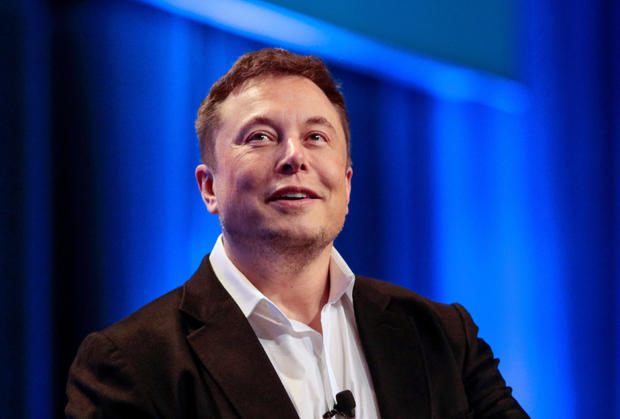Elon Musk likes 80-hour workweeks — science says forget it
If you ever wondered why you haven't yet changed the world, Elon Musk has the answer: You've got to work at least 80 hours a week to make a difference. "Nobody ever changed the world on 40 hours a week," the Tesla CEO and avowed workaholic said on Twitter.
Asked how much time employees need to put in to make a real impact, Musk replied, "Varies per person, but about 80 sustained, peaking above 100 at times. Pain level increases exponentially above 80."
Musk's tweets sparked support from people who agree with his view as well as plenty of outrage. One union official, Diana Hussein, retorted that the workers "who fought for (including those who died) the 40 hour work week changed the world."
As Hussein suggests, the 40-hour work week hasn't always been the norm. In fact, when the U.S. government first started tracking workers' hours, it found manufacturing workers toiled for 100 hours per week or more.
During the early part of the 20th century, the rise of unions and labor activists helped standardize the eight-hour day. Ford Motor Co. was an early adopter of the schedule, and by 1940 the Fair Labor Standards Act capped the workweek at 40 hours. For the first time, employers were also required to pay overtime to employees covered under the law.
How much is too much?
Musk's views raise questions about whether people are more efficient if they work 40 hours a week, or if — as he states — they are capable of "world changing" work when hours are greatly ramped up.
Luckily, scientists have been researching the issue, and Musk might find their results surprising: Working more than 50 hours a week is counterproductive, at least for manufacturing jobs. And too much OT can lead to mental health issues, sleep problems, stress and other problems.
Working more than 50 hours a week resulted in diminishing returns, according to a Stanford University study of munitions factory workers. Fatigue and stress can result in a higher number of errors — a more pressing issue for people handling high explosives than in some other jobs. But in most cases, experts say it behooves both employers and workers to make sure the workday isn't so long that productivity suffers or workplace accidents occur.
But what about white-collar workers, or even CEOs like Musk for whom burning the midnight oil has long been taken as a sign of commitment to the corporate cause? Employees may think they're showing their devotion or making a difference by plugging away for 60 hours a week, but research shows that anything beyond that threshold actually lowers their productivity.
Musk's tweet also overlooks the difference between working 80 hours per week for on behalf of one's own business versus for another's profit. As Tesla's biggest shareholder, his potential benefit he gets from putting in long hours doesn't compare with the returns for rank-and-file engineers. That's because the return on capital, such as equity stakes in businesses, have far outpaced the rate of growth in wages.
Musk's previous take: "Not been great"
Even if you aren't plugging away for 50 hours per week, don't despair — you're in good company. Americans say they work slightly more than eight hours a day, according to Gallup.
Granted, many of those people may never change the world in the Musk-ian sense. But even some of the world's deepest thinkers famously limited their working hours, according to Alex Soojung-Kim Pang, author of "Rest: Why You Get More Done When You Work Less."
Charles Darwin, Charles Dickens and film director Ingmar Bergman were among those who distilled their work into just a few hours a day.
"Their creativity and productivity, in other words, were not the result of endless hours of toil," Pang wrote in Nautilus magazine. "Their towering creative achievements result from modest 'working' hours."
And then there's this -- in an August interview with The New York Times, Musk himself acknowledged the physical and emotional toll working massive hours at Tesla was having on him. Asked if he was running himself ragged, Musk told the paper: "It's not been great, actually. I've had friends come by who are really concerned."
His remarks came around the time that Musk tweeted his desire to take Tesla private, shocking investors and eventually sparking an investigation by securities regulators.
One possible lesson? Get some rest.




